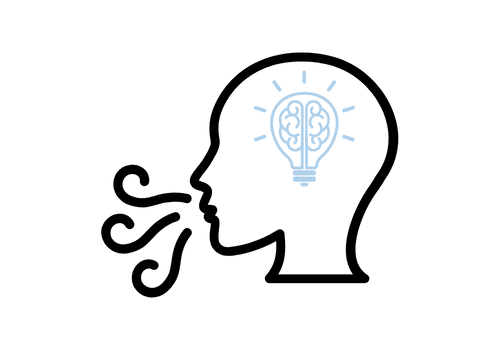What Is Deep Breathing?
Deep breathing is a controlled breathing technique that involves slow, intentional breaths to regulate the nervous system, reduce stress, and improve focus. Unlike shallow breathing, which keeps oxygen levels low and can increase anxiety, it activates the body’s relaxation response, promoting calmness and clarity.
Deep breathing is widely used in mindfulness practices, meditation, and executive function coaching as a tool for improving emotional regulation and cognitive performance.
Why Is Deep Breathing Important?
Practicing deep breathing has both physiological and psychological benefits, including:
🛑 Stress Reduction
Deep breathing lowers cortisol levels, reducing feelings of anxiety and overwhelm.
💡 Improved Focus and Attention
By increasing oxygen flow to the brain, deep breathing enhances concentration and problem-solving abilities.
🔄 Emotional Regulation
Slowing down the breath helps manage frustration, anger, and impulsive reactions.
⏳ Better Impulse Control
Taking a deep breath before reacting gives the brain time to process situations more rationally.
❤️ Increased Heart Rate Variability (HRV)
Higher HRV is linked to better emotional resilience, reduced stress, and overall cognitive flexibility.
How Deep Breathing Supports Executive Function
It is a valuable tool for strengthening executive function skills, such as:
- Emotional Regulation: Helps manage stress and frustration in high-pressure situations.
- Inhibitory Control: Creates a pause before reacting, improving decision-making.
- Attention Control: Enhances sustained focus by calming mental distractions.
- Working Memory: Supports cognitive processing by reducing mental fatigue.
- Task Initiation: Reduces procrastination by lowering anxiety about starting tasks.
Common Signs of Stress and Shallow Breathing
Shallow or rapid breathing is a sign of an activated stress response. Signs that you may benefit from deep breathing include:
- ⚡ Feeling constantly rushed, overwhelmed, or anxious.
- 💭 Racing thoughts and difficulty concentrating.
- 🔥 Frequent frustration, irritability, or emotional outbursts.
- ⏳ Procrastination and difficulty getting started on tasks.
- 💤 Trouble sleeping or feeling restless.
Effective Deep Breathing Techniques
There are several methods that can help improve focus and regulate stress.
✅ 1. Box Breathing (4-4-4-4)
Breathe in for 4 seconds, hold for 4 seconds, exhale for 4 seconds, and hold for 4 seconds before repeating.
✅ 2. 4-7-8 Breathing
Inhale for 4 seconds, hold for 7 seconds, and exhale slowly for 8 seconds to promote relaxation.
✅ 3. Diaphragmatic Breathing
Place one hand on your stomach and the other on your chest. Breathe deeply into your diaphragm, ensuring your stomach expands while your chest remains still.
✅ 4. Alternate Nostril Breathing
Close one nostril and inhale deeply through the other, then switch nostrils. This technique balances brain activity and reduces stress.
✅ 5. Resonant Breathing
Slow your breathing to six breaths per minute to achieve an optimal state of calm and focus.
How to Incorporate Deep Breathing Into Daily Life
Making deep breathing a habit can improve overall well-being and executive function. Try these simple ways to integrate deep breathing into your routine:
- 🌅 Practice for 5 minutes in the morning to start your day with focus.
- 🎯 Use before a big task to reduce anxiety and increase motivation.
- 🔄 Take deep breaths during transitions between tasks to improve cognitive flexibility.
- 🛏️ Use at night to unwind and improve sleep quality.
- ⏳ Pair with mindfulness or meditation for long-term benefits.
How Executive Function Coaching Can Help Use Deep Breathing
For individuals struggling with stress, focus, or impulse control, executive function coaching provides personalized strategies that incorporate deep breathing techniques. Coaching can assist with:
- Teaching breathing exercises to regulate emotions and improve focus.
- Strengthening impulse control through mindful breathing strategies.
- Creating personalized routines for stress management and cognitive performance.
- Enhancing self-awareness through breathwork and mindfulness techniques.
By incorporating deep breathing into daily life, individuals can reduce stress, improve focus, and enhance overall executive function skills.
📞 Want to improve your focus and emotional regulation? Contact us for executive function coaching today!




